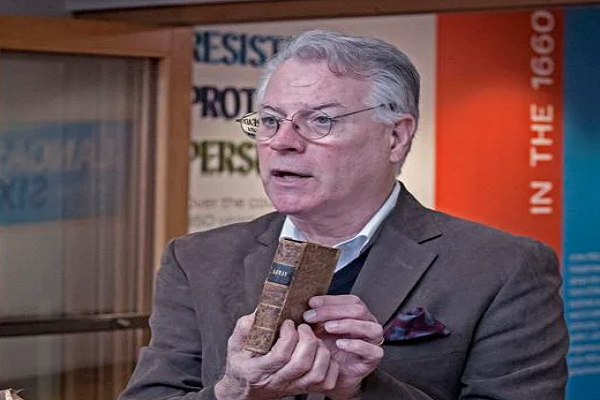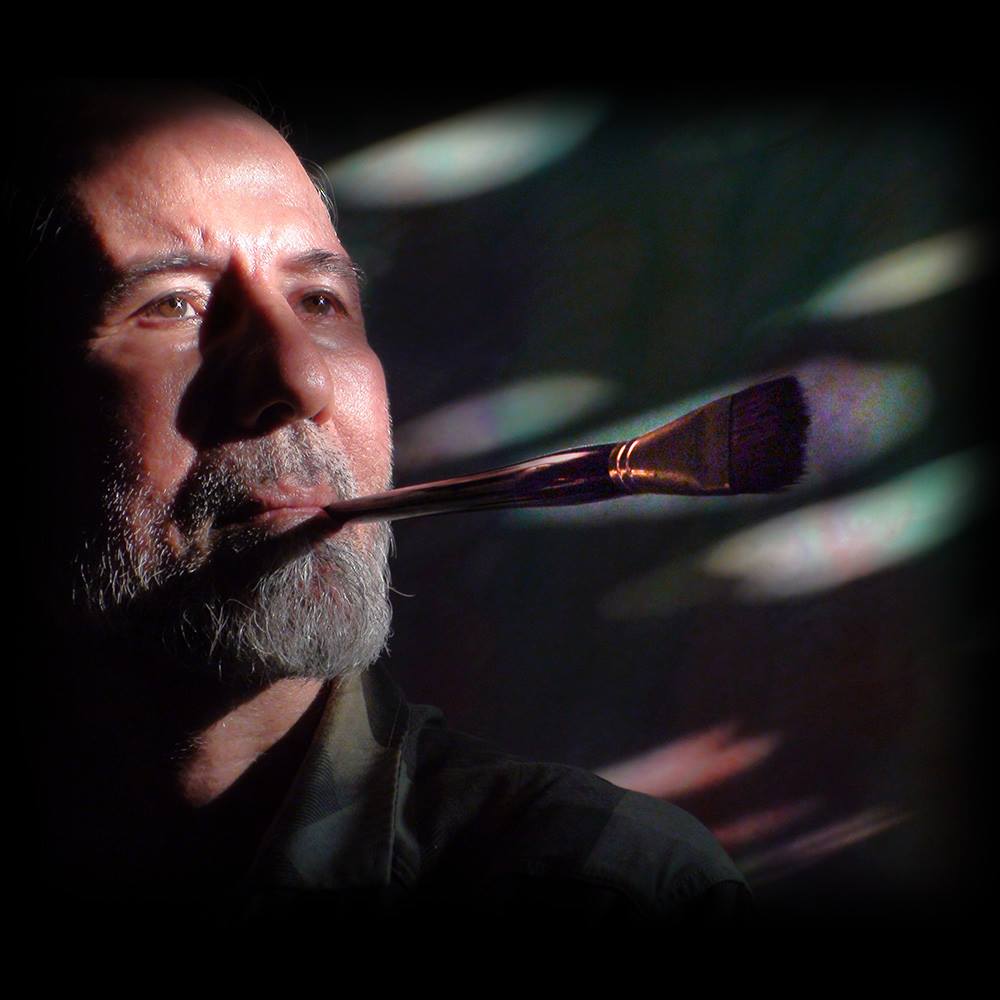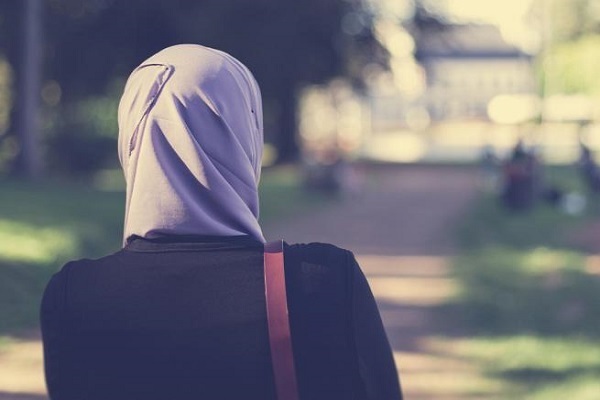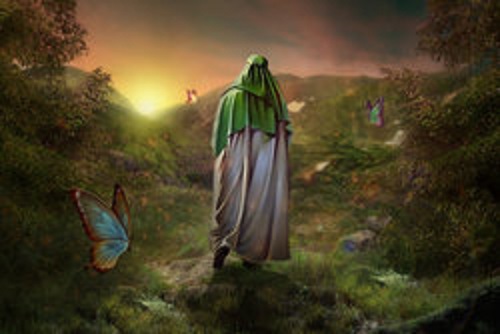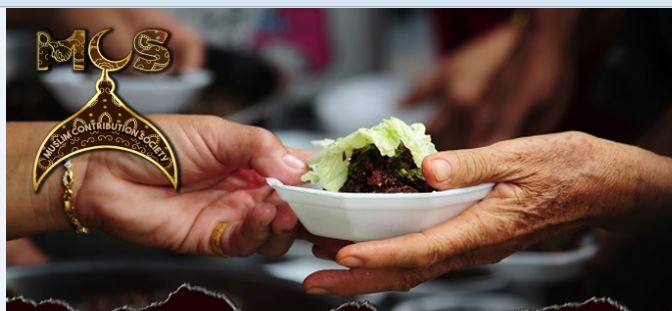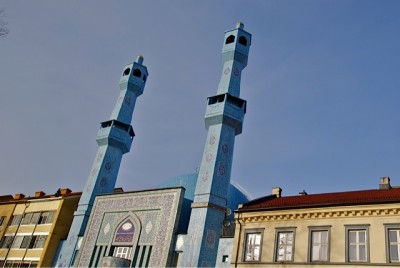According to Rahyafte(the missionaries and converts website)It’s been 187 years since the copy of the Quran was printed, but now, after an international journey, it’s returned once more.
The printing company was located at 9 Center Square, what’s now Penn Square in Lancaster city.
Through joint efforts by LancasterHistory and the Islamic Community Center of Lancaster, LancasterHistory acquired the copy of the Quran through a January auction. The text is now part of LancasterHistory’s collection.
Representatives from the two organizations celebrated the acquisition at an event Wednesday at LancasterHistory, 230 N. President Ave.
“It’s exciting to have an actual copy of the Quran, which was printed in Lancaster, as part of LancasterHistory,” said Shakeel Amanullah, Islamic Community Center of Lancaster founder and chair of the group’s board of trustees.
Amanullah presented the 1835 copy to Thomas Ryan, LancasterHistory president and CEO, and J. Richard “Rick” Gray, LancasterHistory board of directors chair and former Lancaster city mayor. Amanullah also presented LancasterHistory with an Arabic hard-back version of the holy text and a contemporary English version.
“The Quran is an important piece of historical memorabilia and demonstrates the Muslim faith was part of the fabric of Lancaster County,” Ryan said.
The event’s timing is significant, too, as Muslims are currently observing Ramadan, a month of fasting, prayer and reflection. Ramadan continues to the evening of May 2.
After a supporter of LancasterHistory alerted the organization that the Lancaster-printed Quran was available from Chiswick Auctions, a London auction house, the two organizations joined efforts to acquire it.
LancasterHistory purchased the copy Jan. 27 for $1,000. Ryan and Gray delivered it to the Islamic Community Center of Lancaster on March 24.
“Being written in English, we were asked to review the translation for accuracy,” said Mukaram Syed, board trustee for the Islamic Community Center of Lancaster, which was founded in 2013 to meet the growing needs of the local Muslim community.
The rare copy of the Quran is in good shape. It’s surprisingly small in size, with very fine paper and some wear and tear on the spine.
Syed gave a brief background about the Quran’s significance to Muslims. The text is the Word of God for Muslims with revelations given to the Holy Prophet Muhammad (PBUH). It includes religious philosophy for social and moral behavior, plus historical accounts of certain prophets and peoples, arguments for accepting Muhammad (PBUH) as a genuine Prophet.
Muslims believe the Quran is the unchanged last Revelation, and God has promised to protect and preserve His Book. All Muslims memorize and seek to learn it in its original language of revelation – Arabic – to understand it directly. While there are many different spellings for the Holy book – Quran, Koran, Qur’an, for Muslims, Syed said, Quran or Qur’an is correct. Koran is incorrect and is being phased out.
The first English translation of the Quran was done in 1649 by Alexander Ross, a Scottish Christian cleric and chaplain to King Charles I. It was translated from a French translation published in 1647 by Andre’ du Ryer and not from original Arabic.
The English copy presented to LancasterHistory is the third translated edition. It has 18 chapters with 288 pages.
At the Wednesday event, Syed read the first chapter of the Quran, which is a short prayer memorized and repeated by Muslims 20 times every day.
“The Islamic Community Center of Lancaster is very proud of LancasterHistory’s work to educate the public on the history of Lancaster County and its place in the history of Pennsylvania and the United States,” Syed said.
What it means to Lancaster
Suzanne Woodard, LancasterHistory board of directors member, said LancasterHistory’s first collaboration with the Islamic Community Center of Lancaster is an “exciting partnership.” LancasterHistory board member Leroy Hopkins agreed and finds it “fantastic” to have the Quran copy printed in Lancaster as part of the organization’s collection.
Gray said William Penn founded Pennsylvania as a colony for people who fled religious persecution.
“In Lancaster County, religious tolerance is in our genes,” Gray said.
The Quran will be on display in the Ware Commons through May 2, the end of Ramadan. It will continue to be exhibited in various exhibitions for the public to view.
“It’s my sincere hope this will lead to a closer relationship between our two organizations and folks will visit to learn more about both,” Ryan said.
Source: Lancasteronline
